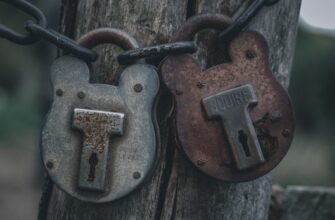🎮 Level Up with $RESOLV Airdrop!
💎 Grab your free $RESOLV tokens — no quests, just rewards!
🕹️ Register and claim within a month. It’s your bonus round!
🎯 No risk, just your shot at building crypto riches!
🎉 Early birds win the most — join the drop before it's game over!
🧩 Simple, fun, and potentially very profitable.
- Store Crypto Without KYC: Beginner’s Guide to Non-Custodial Wallets
- What Are Non-Custodial Wallets?
- Why Avoid KYC for Crypto Storage?
- Top 4 Non-Custodial Wallets for Beginners (No KYC)
- How to Set Up Your KYC-Free Wallet: 5 Simple Steps
- 6 Security Musts for Non-KYC Wallets
- Frequently Asked Questions (FAQ)
- Is non-KYC crypto storage legal?
- Can I buy crypto without KYC for my wallet?
- What if I lose my seed phrase?
- Are non-KYC wallets safe for beginners?
- Do governments track non-custodial wallets?
- Can I switch wallets later?
Store Crypto Without KYC: Beginner’s Guide to Non-Custodial Wallets
Want to store cryptocurrency without handing over your passport or ID? You’re not alone. Many beginners seek privacy-focused solutions to manage digital assets without KYC (Know Your Customer) verification. This guide explains how non-custodial wallets let you store crypto anonymously while maintaining full control of your funds. Discover wallet options, setup steps, security essentials, and answers to common questions – all tailored for crypto newcomers.
What Are Non-Custodial Wallets?
Non-custodial wallets put you in complete control of your cryptocurrency. Unlike exchanges or custodial wallets (which hold your private keys and require ID verification), non-custodial wallets let you:
- Generate and store your own private keys
- Access funds without third-party permission
- Operate 100% anonymously – no name, email, or ID needed
- Bypass KYC/AML regulations entirely
This “be your own bank” approach aligns with crypto’s original vision of financial sovereignty.
Why Avoid KYC for Crypto Storage?
While KYC serves legitimate purposes like fraud prevention, many users avoid it for:
- Privacy Protection: Prevent personal data leaks from exchange hacks
- Reduced Censorship Risk: Avoid account freezes based on geography or politics
- Asset Control: Eliminate withdrawal limits or transaction approvals
- Philosophical Alignment: Support crypto’s decentralized ethos
Note: Converting crypto to fiat (like USD) usually requires KYC. This guide focuses solely on storage.
Top 4 Non-Custodial Wallets for Beginners (No KYC)
These user-friendly options require zero identification:
- Exodus: Desktop/mobile wallet with intuitive interface + built-in exchange (supports 250+ coins)
- Trust Wallet: Mobile-first design with Web3 browser for dApps (owned by Binance but non-custodial)
- MetaMask: Browser extension/mobile app for Ethereum/ERC-20 tokens + NFT management
- Ledger Nano S Plus: Affordable hardware wallet (cold storage) for maximum security
How to Set Up Your KYC-Free Wallet: 5 Simple Steps
- Download: Get the wallet from official websites (e.g., exodus.com, metamask.io)
- Create Wallet: Select “Create New Wallet” – no personal info required
- Backup Seed Phrase: Write down the 12-24 recovery words on paper (never digitally)
- Set Password: Create a strong password for wallet access
- Receive Crypto: Use your public address to transfer coins from exchanges or peers
Pro Tip: Test recovery with your seed phrase before funding the wallet!
6 Security Musts for Non-KYC Wallets
- 🔒 Guard Your Seed Phrase: Store offline in multiple secure locations (e.g., fireproof safe)
- 🛡️ Use Hardware Wallets for Large Amounts: Devices like Ledger keep keys offline
- 🌐 Verify Website URLs: Avoid phishing sites – bookmark official pages
- 📲 Enable Auto-Lock: Set mobile/desktop wallets to lock after 1-2 minutes
- 🚫 Never Share Private Keys: Legitimate services won’t ask for them
- 🔄 Update Software Regularly: Patch security vulnerabilities
Frequently Asked Questions (FAQ)
Is non-KYC crypto storage legal?
Yes. Owning a self-custody wallet is legal in most countries. Regulations typically apply when converting crypto to fiat currency.
Can I buy crypto without KYC for my wallet?
Yes, via:
- Decentralized exchanges (e.g., Uniswap)
- Bitcoin ATMs with cash
- Peer-to-peer platforms (LocalCryptos, Bisq)
- Crypto gift cards
What if I lose my seed phrase?
Your funds are permanently inaccessible. There’s no password reset or customer support for non-custodial wallets. Physical backups are essential.
Are non-KYC wallets safe for beginners?
They’re secure if you follow best practices. Start with small amounts, use simple software wallets like Exodus, and gradually advance to hardware wallets as your portfolio grows.
Do governments track non-custodial wallets?
Wallet addresses are public on blockchains, but identities aren’t automatically linked. Privacy coins like Monero offer enhanced anonymity.
Can I switch wallets later?
Absolutely. Import your seed phrase into a new wallet anytime – your crypto follows your keys, not the app.
By choosing non-custodial wallets, beginners gain true ownership of their crypto assets without compromising privacy. Start small, prioritize security, and embrace financial sovereignty.
🎮 Level Up with $RESOLV Airdrop!
💎 Grab your free $RESOLV tokens — no quests, just rewards!
🕹️ Register and claim within a month. It’s your bonus round!
🎯 No risk, just your shot at building crypto riches!
🎉 Early birds win the most — join the drop before it's game over!
🧩 Simple, fun, and potentially very profitable.








